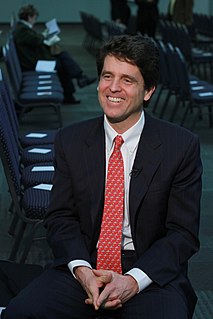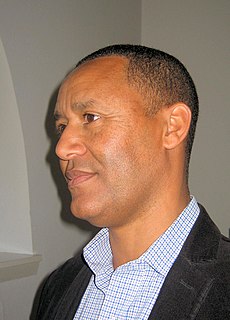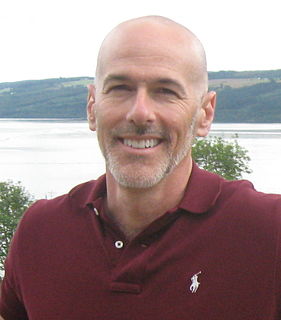A Quote by Bob Ehrlich
Experts tell us that 90% of all brain development occurs by the age of five. If we don't begin thinking about education in the early years, our children are at risk of falling behind by the time they start Kindergarten.
Related Quotes
Studies have proven that early childhood education returns to society as much as $12 for every dollar invested. Our goal is to identify the most important development opportunities for children five years and younger, providing insight to transform early childhood education from a social policy issue into an economic imperative.
Even today . . . experts, usually male, tell women how to be mothers and warn them that they should not have children if they have any intention of leaving their side in their early years. . . . Children don't need parents' full-time attendance or attention at any stage of their development. Many people will help take care of their needs, depending on who their parents are and how they chose to fulfill their roles.
And when it comes to developing the high standards we need, it's time to stop working against our teachers and start working with them. Teachers don't go in to education to get rich. They don't go in to education because they don't believe in their children. They want their children to succeed, but we've got to give them the tools. Invest in early childhood education. Invest in our teachers and our children will succeed.
Now, today, some children are enrolled in excellent programs. Some children are enrolled in mediocre programs. And some are wasting away their most formative years in bad programs....That's why I'm issuing a challenge to our states: Develop a cutting-edge plan to raise the quality of your early learning programs; show us how you'll work to ensure that children are better prepared for success by the time they enter kindergarten. If you do, we will support you with an Early Learning Challenge Grant that I call on Congress to enact.
This is a devastating problem, is, the longer our children are in school, the worse they do. Year after year after year, our children in America are falling further behind. Our 3- and 4-year-olds enter kindergarten OK, and they fall further and further behind. Each year, children in other countries are learning more than children in this country. And so the gap between American student performance in Singapore and Finland and South Korea and Canada and these other countries, the gap widens year after year after year.
Quintilian [educational writer in Rome around A.D. 100] thought that the earliest years of the child's life were crucial. Education should start earlier than age seven, within the family. It should not be so hard as to give the child an aversion to learning. Rather, these early lessons would take the form of play--that embryonic notion of kindergarten.
The concussion crisis has changed the face of sports as we know it and it has brought to surface the incredible importance of our brain health. The time is now for us to make our brain the number one priority so that education and awareness can take effect, and begin to change the way we approach the health of our athletes from youth to professionals.
At age three, if you have a still-growing brain, it's a human behavior. In chimps, by age three, the brain is formed over 90 percent. That's why they can cope with their environment very easily after birth - faster than us, anyway. But in humans, we continue to grow our brains. That's why we need care from our parents.
The Information Age is, first and foremost, an education age, in which education must start at birth and continue throughout a lifetime. Last year, from this podium, I said that education has to be our highest priority. I have something to say to every family listening to us tonight: Your children can go on to college.... Because of the things that have been done, we can make college as universal in the 21st century as high school is today. And, my friends, that will change the face and future of America.
That we need help is easy to see every time we walk down the street. The experts confirm what the obscured view in front of us tells us. They estimate that 64% of adults in the United States are obese and that this percentage is growing. Even our children are being affected, as nearly every one in three American children under the age of 18 is overweight.

































